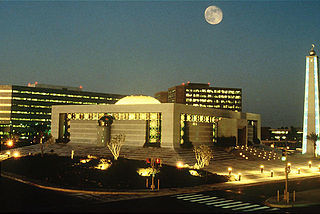
Oil gave up its gains after the world’s biggest crude exporter said it’s keeping up investments in energy projects.
Futures dropped as much as 1.2 percent after earlier rising as much as 1.7 percent in New York. Saudi Arabian Oil Co., the world’s largest exporter, hasn’t reduced its investment capacity amid lower crude prices and is building a marine cluster in eastern Saudi Arabia, Chairman Khalid Al-Falih said Monday.
“The Saudi news surely would give a little bit of a worry that production would remain strong,” Daniel Ang, an investment analyst at Phillip Futures, said by phone from Singapore. “The main reason for oil losing steam still comes from the fact that oil markets are currently in oversupply.”
Oil has fallen about 13 percent this year as volatility in global markets adds to concern over brimming U.S. stockpiles and the prospect of additional Iranian exports. Prices may take as long as three years to normalize and a speedy rebound is unlikely, Bank of Montreal Chief Executive Officer William Downe said in an interview in Davos, Switzerland, on Friday.
West Texas Intermediate for March delivery dropped as much as 37 cents to $31.82 a barrel on the New York Mercantile Exchange and was at $31.87 at 8:11 a.m. London time. Total volume traded was more than double the 100-day average. Front- month prices rose 21 percent over two sessions at the close Friday after the February contract expired Wednesday at $26.55 a barrel, the lowest since 2003.
Brent for March settlement lost as much as 58 cents, or 1.8 percent, to $31.60 a barrel on the London-based ICE Futures Europe exchange. The contract gained $2.93, or 10 percent, to $32.18 Friday. Prices advanced 11 percent last week. The European benchmark crude was at a discount of 16 cents to WTI.
Aramco has formulated a new strategy in response to cheaper oil, Al-Falih said at a conference in Riyadh.
“I’ve continued to encourage fiscal discipline in my role as chairman of Aramco,” he said. “In our investments capacity, oil and gas has not slowed down.”
